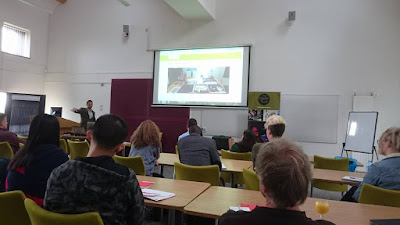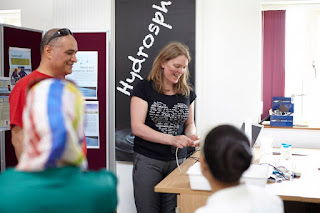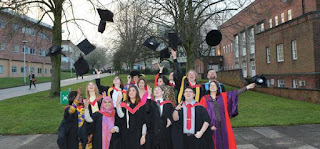There is certainly an art to giving feedback that is tough enough, but doesn't knock confidence and builds student resilience. Good feedback should be positively directly, e.g., work that is lacking detail, has major omissions or is too short "Could include more..". Those who welcome feedback, good and bad, and take it on board often flourish. Not all students see that right away and some never see it. We focus on feedback but surely we need to teach students how to use feedback too.
 |
| MSc in Environmental Sustainability & Green Technology students |
I was sat in my office with a student. "Bad feedback is sometimes really good feedback.". The student nodded in agreement, but although the head was moving up and down the eyes were telling a different story. The eyes looked hurt and the eyebrows were no longer level, one of them scrunched down and one raised giving away the skepticism that lay beneath. I knew that the next time I would see this student they would probably be celebrating success, having improved by taking my feedback on board. I was right. This student continued to improve and achieved a distinction.
Students are becoming more demanding (understandably so) in the UK as consumers of an education service they now pay for from their own pocket. Lecturers are coming under more pressure to be more customer-focused. What does that mean for effective education? It certainly means that we aim to have happy students. Keele University has been ranked number one for Student Satisfaction for the last three years so we are doing something right. Does that mean that we always tell the students what they want to hear? Of course not. We tell students what they need to hear. A good education is about supporting improvement and that includes driving improvement, maintaining tough standards and making sure that the education our students are now paying for is the best. That means supporting and challenging and that starts with focusing on feedback and sometimes that can be tricky to deliver and harder to digest. I have found that supporting students to be receptive to feedback at the start of their journey can be the key to unlocking their potential.















